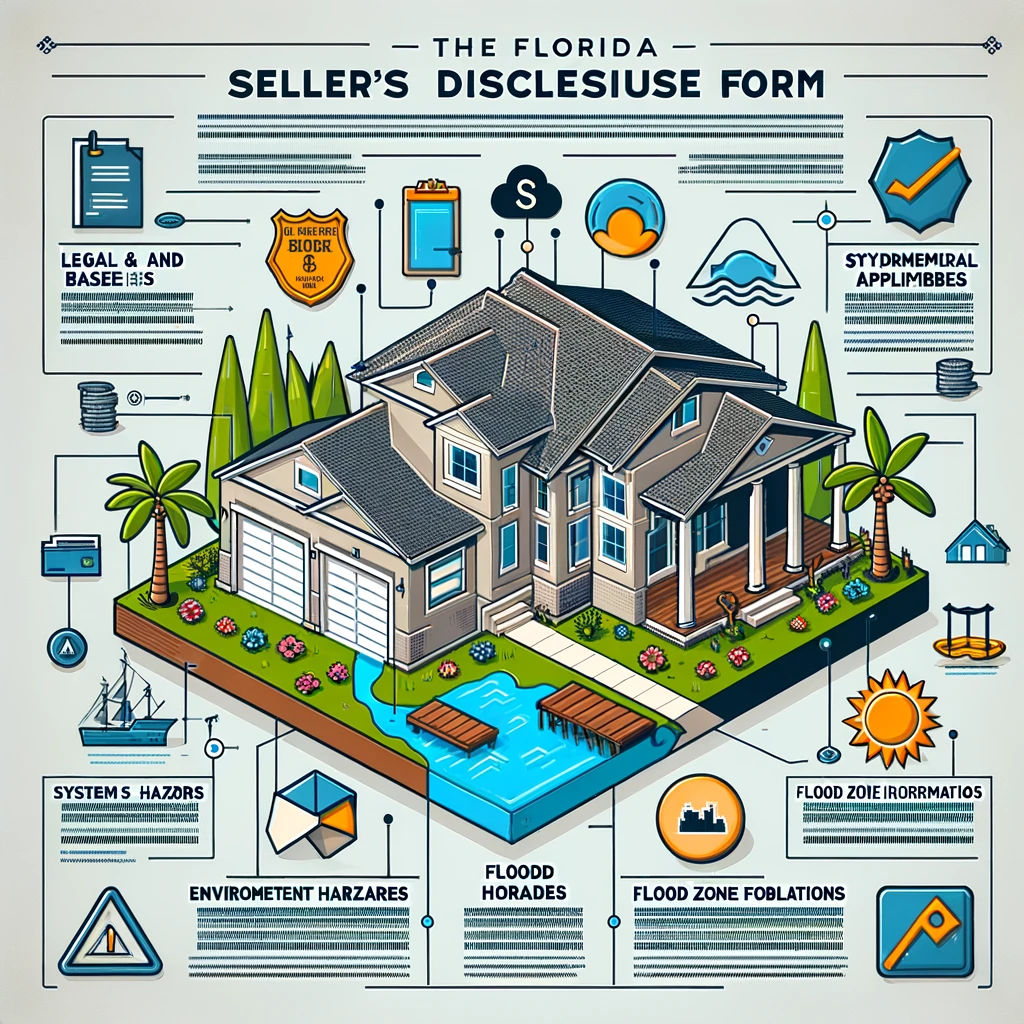The Ultimate Guide to the Florida Seller's Disclosure Form
In the vibrant and ever-evolving real estate market of Florida, transparency between sellers and buyers is not just encouraged—it's mandated by law. Central to this transparency is the Florida Seller's Disclosure Form, a critical document designed to inform buyers about the condition of the property they intend to purchase. This guide provides an in-depth look at the Florida Seller's Disclosure Form, exploring its significance, key components, and legal implications, while integrating authoritative sources to enhance credibility and support.

Understanding the Florida Seller's Disclosure Form
The Florida Seller's Disclosure Form is a legal document that sellers of residential property are typically required to complete and provide to potential buyers. This form contains vital information about the property's condition, including any known defects or issues that could affect the property's value or desirability. The aim is to ensure buyers are fully informed before making one of the most significant investments of their lives.
The Legal Basis
Florida law places a strong emphasis on the principle of "caveat emptor" or buyer beware. However, this principle is balanced by legal precedents and statutes that require sellers to disclose known defects that are not easily observable to buyers. The Florida Supreme Court's decision in Johnson v. Davis fundamentally changed the landscape, setting a precedent that sellers must disclose known material defects.
Key Components of the Seller's Disclosure Form
A comprehensive Florida Seller's Disclosure Form typically includes sections on:
Structural Components: Information on the foundation, walls, roof, and other structural elements.
Systems and Appliances: Details about the HVAC system, plumbing, electrical systems, appliances, and any known issues.
Environmental Hazards: Disclosure of any known environmental hazards like lead paint, asbestos, or mold.
Flood Zone Information: Indication of whether the property is in a flood zone, which is particularly relevant in Florida.
Code Violations: Any known code violations or unpermitted work done on the property.
Legal Implications for Sellers
Failing to accurately complete the Seller's Disclosure Form can lead to legal consequences for sellers, including the possibility of the buyer rescinding the purchase agreement or seeking damages for nondisclosure. Therefore, it's imperative for sellers to be thorough and honest in their disclosures.
Why It Matters for Buyers
For buyers, the Seller's Disclosure Form is a crucial source of information, revealing potential issues that could affect the property's safety, functionality, and overall value. It serves as a foundational document that can guide further inspections and negotiations.
Best Practices for Completing the Seller's Disclosure Form
Be Honest and Thorough: Sellers should disclose all known defects and not attempt to hide any issues.
Consult Professionals: When in doubt about the condition of certain aspects of the property, consulting with professionals (e.g., roofers, plumbers) can provide clarity.
Update as Necessary: If new issues arise after the initial disclosure, the seller should update the form accordingly.

Create & Review Your Contracts 10x Quality and Ease
Lawyer-level AI handles all your contract needs, with real lawyers providing safeguarding support

Navigating Legal Resources and Support
To ensure compliance and understand the nuances of the Seller's Disclosure Form, accessing authoritative resources is key. Sellers and buyers can consult:
The Florida Department of Business and Professional Regulation (DBPR) for regulations and guidance on real estate practices.
Florida Realtors®, which offers templates and detailed explanations of the disclosure requirements.
Academic resources such as the University of Florida's Levin College of Law provide insights into property law and precedent-setting cases like Johnson v. Davis.
Conclusion
The Florida Seller's Disclosure Form is a pivotal document in the state's real estate transactions, ensuring transparency and protecting the interests of both buyers and sellers. By understanding its components, significance, and legal context, parties can navigate the complexities of property transactions with greater confidence and integrity. Whether you're selling a beachfront condo or a suburban home, adhering to the disclosure requirements is not just about legal compliance—it's about fostering trust and facilitating smoother, more informed transactions in Florida's dynamic real estate market.

